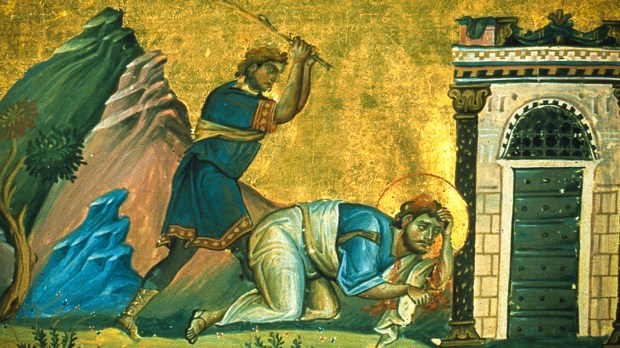Not surprisingly, little is known about the apostle “James the Lesser,” whose feast is, with St Philip, celebrated on May 3. There are many men in the New Testament with the name James, and two are identified as part of the group of original 12 apostles.
There is James and his brother John, the sons of Zebedee who are both apostles, and then there is James the Less, often identified as the “son of Alphaeus” as well as the “brother of the Lord.” This identity makes some scholars posit that James is a close cousin to Jesus, but besides that relation, hardly anything is mentioned about him or his past.
According to Butler, the “appellation [‘the Less’] is supposed to have taken its rise, either from his having been called later to the apostleship than the former, or from the lowness of his stature, or from his youth.”
Essentially it was used to distinguish the two apostles with the same name. On account of this early distinction Saint James the Less was even given a “lesser” place in the Roman Canon, lower down the list of apostles after Saint James the Great.
However, the role of James in the early Church was far from “less” and his activities were quite important.
Some scholars believe that Saint James the Less authored the “Epistle of St. James” found in the New Testament. It is a short letter focused on patience during suffering and is most widely known for its verses about faith and works, “But some one will say, ‘You have faith and I have works.’ Show me your faith apart from your works, and I by my works will show you my faith.” (James 2:18)
After the apostles dispersed and left Jerusalem, James remained and became the first bishop in the holy city. He remained there for several decades until he was stoned to death by the Jewish authorities in the year 62. His work and blood were at the foundations of the Church in Jerusalem; it was one of the greatest Sees in the Catholic Church for centuries after.
In the end, while Saint James received a diminutive title after his death, it should remind us that titles really do not matter in this life or the next. All that matters is following God’s will and walking in his footsteps. Like Saint John the Baptist, Saint James teaches us that we should strive to decrease so that God can increase in our lives.

